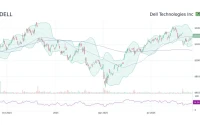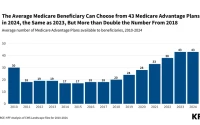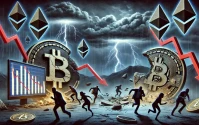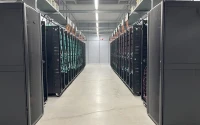When the final numbers for the Klarna IPO, which led to Klarna’s Stock Surge: Unraveling the Upward Trend - StocksToTrade, flashed across my screen on October 2nd, I honestly just sat back in my chair, speechless. It wasn’t just the impressive surge—a 17% pop after pricing, closing the day up over 10%—or the hefty $15 billion valuation. We see big numbers in tech all the time. No, this was different. This felt like a tectonic plate shifting beneath the very foundation of commerce. What we witnessed with the `Klarna stock` (NYSE: KLAR) wasn't just another FinTech company going public; it was the coronation of a new economic philosophy.
For years, we’ve talked about the digitization of money. We’ve seen payment apps come and go. We have PayPal, we have credit cards with tap-to-pay, but fundamentally, the underlying system has remained stubbornly archaic. It’s a system built for a world of physical banks, paper statements, and 9-to-5 business hours. It’s rigid, full of friction, and deeply impersonal. What Klarna and its peers like `Affirm` and `Afterpay` have been building, piece by piece, is something else entirely. They aren't just putting a digital wrapper on an old product. They are architecting a new one from the ground up.
The skepticism I’ve heard from some financial analysts—worries about the high valuation, the $16.6 billion in liabilities—misses the point so profoundly it’s almost poetic. They are trying to measure a spaceship with a yardstick. They see liabilities; I see the necessary capital to build a global trust network. They see a high price-to-earnings ratio; I see a market correctly pricing in a paradigm shift. This is the kind of breakthrough that reminds me why I got into this field in the first place: to witness the moment an idea becomes an institution.
The Operating System for Trust
Let’s reframe this. Stop thinking of Klarna as just a "buy-now-pay-later" service. That’s like calling the internet a "digital postcard" system. The `Klarna payment` model is simply the most visible application of a much deeper innovation. It’s built on the buy-now-pay-later model—in simpler terms, it’s a system that decouples the moment of purchase from the moment of payment, making commerce incredibly fluid. But the real magic, the "Big Idea," is that Klarna is becoming the operating system for a new, trust-based digital economy.
Think of it this way. The old financial world runs on a rigid, one-size-fits-all credit score. It’s a blunt instrument, a single number that supposedly defines your trustworthiness. It’s slow, biased, and often disconnected from your real financial life. What Klarna is building is a dynamic, real-time understanding of millions of individual consumer-merchant relationships. It’s a network that runs on data, not debt, and its currency is reliability. Every seamless transaction, every on-time `Klarna payment`, strengthens this network. It’s like TCP/IP for commerce—an underlying protocol that allows for an explosion of new applications and experiences to be built on top of it. Can you imagine the internet existing if every single data packet had to be approved by a central bank? Of course not. So why do we accept that for our economic lives?

This IPO isn't about cashing in; it's about fueling up. The `Klarna IPO price` of $40 a share wasn't just a number; it was a statement of intent. It provided the capital—that massive $5.5 billion in cash reserves—to scale this new operating system globally. The question isn't whether Klarna can compete with traditional banks. The real question is, how long will it take for traditional banks to realize they’re no longer in the same business?
A Generational Handover
This shift is being driven by a profound change in human expectation. My generation and the ones before it were taught to adapt to the systems of the world. We learned to fill out forms in triplicate, wait on hold for `Klarna customer service` (or any service), and accept that the institutions holding our money were opaque and distant. But the digital-native generations? They expect the world to adapt to them. They expect seamless, intuitive, and personalized experiences in every facet of their lives, from entertainment to education. Why on earth would finance be the exception?
This is the cultural wave that Klarna is riding, and the speed of this is just staggering—it means the gap between the old way of doing things and the new is closing faster than most incumbents can even comprehend, let alone react to. I saw a comment on a `Klarna Reddit` forum that captured this sentiment perfectly. It wasn't from a Wall Street analyst, but from a regular user: "People complaining about Klarna don't get it. It's not a credit card. It's my shopping app and my payment app becoming one. It just works the way my brain works."
That’s it. That’s the whole revolution in a nutshell. It’s about reducing cognitive load. It’s about removing friction not just from the transaction, but from the entire commercial experience. Of course, with this new power comes immense responsibility. As companies like `Klarna Group` become central nodes in our economic lives, we must have a serious conversation about data stewardship, algorithmic fairness, and consumer protection. Building a more human-centric economy means we have a duty to protect the humans within it. This isn't just a technological challenge; it's a profound ethical one. How do we ensure these powerful new tools are used to empower everyone, not just a select few?
The `Klarna IPO` was a starting pistol. Now, the real race begins. The race to build a financial world that is as dynamic, intelligent, and responsive as the people it’s meant to serve.
We Just Witnessed a Coronation
Let's be perfectly clear. The success of the `Klarna stock IPO` wasn't just a good day for a Swedish FinTech company. It was a formal, public declaration that the old gods of finance are losing their power. We just watched a generational handover of the keys to the global economy. The future of commerce won't be built in stone-clad towers on Wall Street; it will be coded in Stockholm, San Francisco, and Sydney by people who understand that money is no longer a destination, but a current that should flow as freely and intuitively as information. The era of financial friction is over. Welcome to the smooth economy.









